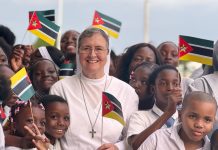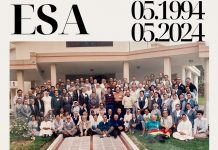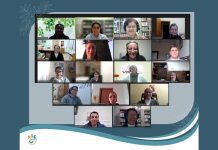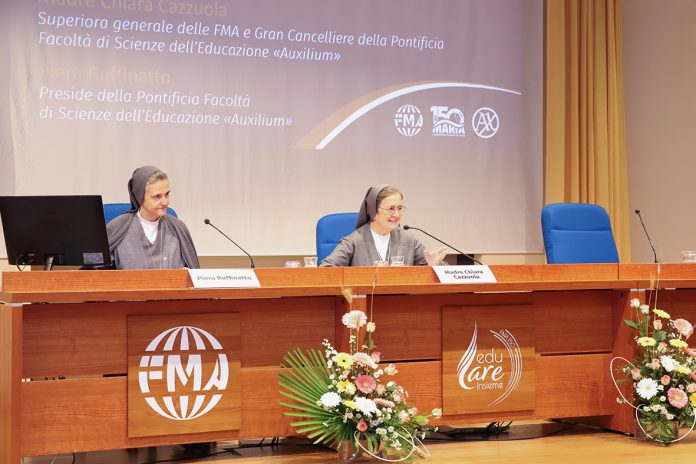Rome (Italy). On 30 September 2022, with the final guidelines and the Eucharistic Celebration presided over by the Rector Major of the Salesians of Don Bosco, Fr. Ángel Fernández Artime, and concelebrated by Fr. Francesco Motto and Fr. Stanisław Zimniak, SDB, President and Secretary of the Salesian History Curators Association (ACSSA), the International Congress “Contribution of the FMA to Education (1872-2022) Paths, Challenges, and Perspectives” concluded. It was organized by the Pontifical Faculty of Education “Auxilium” on the occasion of the 150th anniversary of the Institute’s foundation, held in Rome, in the Generalate of the Institute (RCG), from 25 to 30 September.
Combining memory with a renewed commitment to the future, the event intertwined various registers: historical, which highlighted the commitment to education of generations of educators who on the five continents have been able to accompany young people; pedagogical, in which highly topical questions were raised on what training to guarantee in order to keep up with the needs of young people. Finally, the experiential horizon, with the presentation of two exploratory researches that have investigated respectively the experience of the FMA in 150 years of history and how today some nuclei of the Preventive System are conceived and applied by the FMA and lay collaborators in the educating communities.
The event involved 270 participants in attendance from about 70 countries around the world, 1,065 online members, 45 presenters of international origin, with 5 languages of simultaneous translation. And also, numerous Ambassadors to the Holy See, religious authorities of the Church and of the Salesian Congregation, and scholars.
In the concluding session, Madre Chiara Cazzuola,
Mother Chiara Cazzuola, Superior General of the FMA Institute and Grand Chancellor of the Pontifical Faculty of Educational Sciences “Auxilium”, indicates a future perspective for the Institute, which in the 150th anniversary of its foundation intends to relaunch the educational mission in diverse contexts.
She reiterates that the Congress “was not just a celebratory event as the culmination of a long and careful preparation”, but a “starting point for a new journey in the name of responsibility towards the young people entrusted to us, towards our Founders, towards the Church, and the society in which we are inserted, in the various geographical and cultural contexts”.
She also highlights the need to “invest more decisively in formation, because the world changes quickly and complexity is not faced with good will alone, but with qualified and ongoing updated formation. It takes ‘broad vision’, solid culture, wisdom, a critical and proactive sense that opens up horizons and nurtures dreams. It takes consistency and strength of testimony to be effective”.
The three sessions were united by a single red thread: placing the Preventive System in dialogue with the contemporary challenges to the education of young people. “Reinterpreting the Preventive System today, that of being good Christians and honest citizens, means developing processes of co-responsibility in socio-political action in the younger generations. This is one of the commitments of the Faculty for the future that awaits us” affirms, among other things, the Dean of the Faculty, Sr. Piera Ruffinatto, underlining how education is “the best way to place oneself in the world and transform it.”
Some resonances in the hall, in which the participants express gratitude for the richness of the contents and reflections offered, as well as for the family atmosphere experienced during the days of the Congress, close the work and prepare to live the Eucharistic celebration, the gratitude par excellence, asking St. Mary Domenica Mazzarello, who was the first to believe in that message, “I entrust them to you”, to help all the FMA to re-consign themselves to the Lord, for the work that continues to be carried out still today in the Institute for the good of young people.
In his homily, the Rector Major highlights the journey of 150 years of life of the FMA Institute, whose “history is full of educational miracles, of realities in which love has healed so many lives, where you have managed to transform cities, villages, spaces, and families … and this is a glorious page that is present today and will also be in the future.” Taking up the Word of God, “God has chosen what is humble in the world” (1 Cor 1:27), he underlined that the strength of Mother Mazzarello lies in her love as a mother, in weakness made strong, and in faith. He concluded by saying:
“I invite you to continue to believe that a beautiful future awaits us, which does not have much to do with how many resources we have. The point where everything is played out is when a boy or a girl, after meeting us, leaves with a full heart because of a word from us, a smile, a look. I believe that this was the strength of the first community in Mornese, of the first community in Valdocco, of the first missionaries, who had almost nothing but heroism and trust in God the Father. In the 150th anniversary of the Institute, I am convinced that in this way the Help of Christians will continue to work great miracles through you”.
Photos: FlickrFMA




















